#greek civilization
Text
I am doing research on women of Greek mythology and women of Greek civilization. Can someone suggest some good sources.
#Greek Mythology#Greek Civilization#Greek Goddess#Women of Greek mythology#Women of Greek Civilization#Women#Greek#books#Research#project#Greece#Mythology#Civilization#Ancient Greece#Goddess#Artemis#Athena#Hera#History#Research Project#archaeology
19 notes
·
View notes
Photo
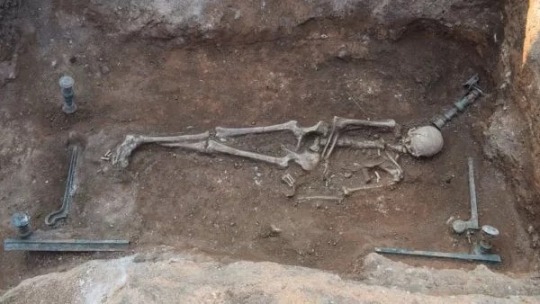

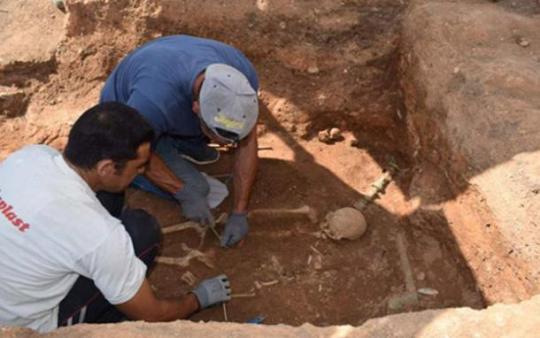
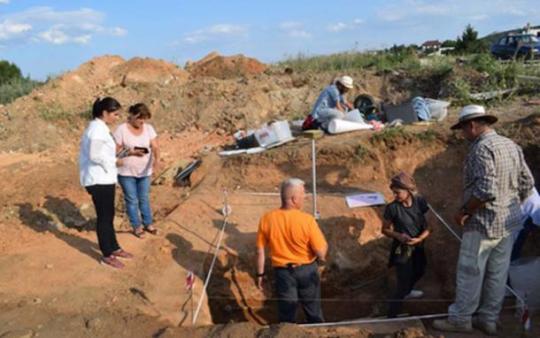



2,100-Year-Old Skeleton of Ancient Woman Lying on a Bronze Bed Found in Greece
Gold laurel leaves, likely from a wreath, lay at her head.
Archaeologists have unearthed the ancient burial of a woman lying on a bronze bed near the city of Kozani in northern Greece. It dates to the first century B.C.
Depictions of mermaids decorate the posts of the bed. The bed also displays an image of a bird holding a snake in its mouth, a symbol of the ancient Greek god Apollo. The woman's head was covered with gold laurel leaves that likely were part of a wreath, Areti Chondrogianni-Metoki, director of the Ephorate of Antiquities of Kozani, told Live Science in an email. The wooden portions of the bed have decomposed.
Gold threads, possibly from embroidery, were found on the woman's hands, Chondrogianni-Metoki said. Additionally, four clay pots and a glass vessel were buried alongside the remains. No other people were buried with her.
Archaeologists are now analyzing the skeleton to determine the woman's health, age when she died and possible cause of death. The artifacts found with her suggest that she likely came from a wealthy background, and may have belonged to a royal family.
"We do not know much about the history of this area [during the first century B.C.]," Chondrogianni-Metoki told Live Science. Thousands of years ago, Kozani was near an important city called Mavropigi (the site is now a village) that housed a sanctuary dedicated to Apollo, Chondrogianni-Metoki said.
Historical records show that during the first century B.C., Roman control and influence in Greece was on the rise. The Romans destroyed the city of Corinth in 146 B.C. and sacked Athens in 86 B.C. In 48 B.C. a crucial battle in northern Greece known as the Battle of Pharsalus saw the army of Julius Caesar defeat a force led by Pompey; the victory resulted in Caesar becoming the de facto ruler of Rome.
It's unclear when exactly in the first century B.C. this woman lived or if she would have witnessed or heard of any of those historic events. The woman’s remains are currently housed at the Archaeological Museum of Aiani in Greece.
#2100-Year-Old Skeleton of Ancient Woman Lying on a Bronze Bed Found in Greece#archeology#archeolgst#ancient tomb#ancient grave#ancient artifacts#history#history news#ancient history#ancient culture#ancient civilizations#ancient greece#greek history#greek civilization#kozani greece#gold#gold leaf#treasure
82 notes
·
View notes
Text
Greek Civilization and self-motivation that propelled them to greatness.
GET MOTIVATIONAL SHIRTS FROM GREEK CIVILIZATION
#greek civilization#self motivation#positive quotes#POSITIVE SHIRTS#good quotes#motivatoinal story#GOOD VIBES#self confidence
0 notes
Video
youtube
History of Ancient Greece | EXPLORE The Greek Civilization
#youtube#history of ancient greece#ancient greece#greek civilization#greece#greek mythology#greek gods#greek#greek posts#greek tumblr
0 notes
Text
Ασύλληπτης ομορφιάς ψηφιδωτά στην αρχαία Ελληνική πόλη Ζεύγμα στην Τουρκία - Την ίδρυσε διάδοχος του Μεγάλου Αλεξάνδρου
Zeugma, an ancient city located in modern-day Turkey, holds a significant place in history due to its rich Greek civilization. Situated on the banks of the Euphrates River, Zeugma served as an important trade and cultural hub during the Hellenistic period.
The Greek influence on Zeugma is evident in its architecture, art, and cultural practices. The city was originally founded by Seleucus I…

View On WordPress
0 notes
Text
Long post from Facebook group: more Carl Sagan’s please:
"At a time some humans call the third century BC, in the greatest metropolis of that time, the Egyptian city of Alexandria. There lived a man named Eratosthenes. One of his envious contemporaries nicknamed him Beta, the second letter of the Greek alphabet, because according to Eratosthenes he was the second best in the world. But it seems clear that Eratosthenes was Alpha in almost everything. He was an astronomer, historian, geographer, philosopher, poet, theater critic and mathematician. The titles of the works he wrote range from astronomy to On freedom in the face of pain. He was also director of the large Library of Alexandria, where one day he read in a book of papyrus that in an advanced post of the southern border, in Siena, near the first waterfall of the Nile, at noon on June 21, a vertical stick did not project shadow. On the summer solstice, the longest day of the year, as the hours advanced and noon approached, the shadows of the temple columns were getting shorter. By noon they were gone. At that moment you could see the Sun reflected in the water at the bottom of a deep well. The sun was right above the heads. *
It was an observation others could have easily ignored. Sticks, shadows, reflections in wells, the position of the Sun: what importance could such simple, everyday things have? But Eratosthenes was a scientist, and his guesses on these topics changed the world; in a sense they made the world. Eratostenes had the presence of spirit to do an experiment, to really observe if in Alexandria the vertical sticks project shadows around noon on June 21. And he found out they did. Eratosthenes then wondered why at the same moment a walking stick did not project any shadow in Siena while in Alexandria, far away to the north, it cast a pronounced shadow. Let's see a map of ancient Egypt with two vertical poles of the same length, one nailed in Alexandria and the other in Siena. Let's suppose that at one point each stick cast no shadow. The fact is explained very easily: just assume that the earth is flat. The sun will then be found right above our heads. If the two sticks project shadows of equal length, the thing is also explained on a flat Earth: the sun's rays have the same tilt and form the same angle with the two sticks. But how to explain that in Siena there was no shade and at the same time in Alexandria the shade was considerable? Eratosthenes understood that the only possible answer is that the Earth's surface is curved. And not only this: the greater the curvature, the greater the difference between shadow lengths. The Sun is so far away that its rays are parallel when they reach Earth. The sticks positioned at different angles with respect to the sun's rays project shadows of different lengths. The difference observed in shadow lengths made it necessary that the distance between Alexandria and Siena out of about seven degrees along the Earth’s surface; that is, if we imagine the sticks extended to the center of the Earth, they will form there a Seven degree angle. Seven degrees is approximately one fiftieth of the three hundred and sixty degrees that contains the entire circumference of the Earth. Eratosthenes knew that the distance between Alexandria and Siena was about 800 kilometers, because he hired a man to measure it in steps.
Eight hundred kilometers by 50 give 40 000 kilometers: this should then be the circumference of the Earth. This is the correct answer. The only tools of Eratosthenes were sticks, eyes, feet and brains, and besides the taste for experimentation. With these elements, he deducted the circumference of the Earth with an error of only one fraction, which is a remarkable achievement 2200 years ago. He was the first person to accurately measure the size of a planet. "
Cosmos

#carl sagan#science#egypt#earth#eratosthenes#ancient greek#greek civilization#alexandria#library of alexandria#cosmos
1 note
·
View note
Text
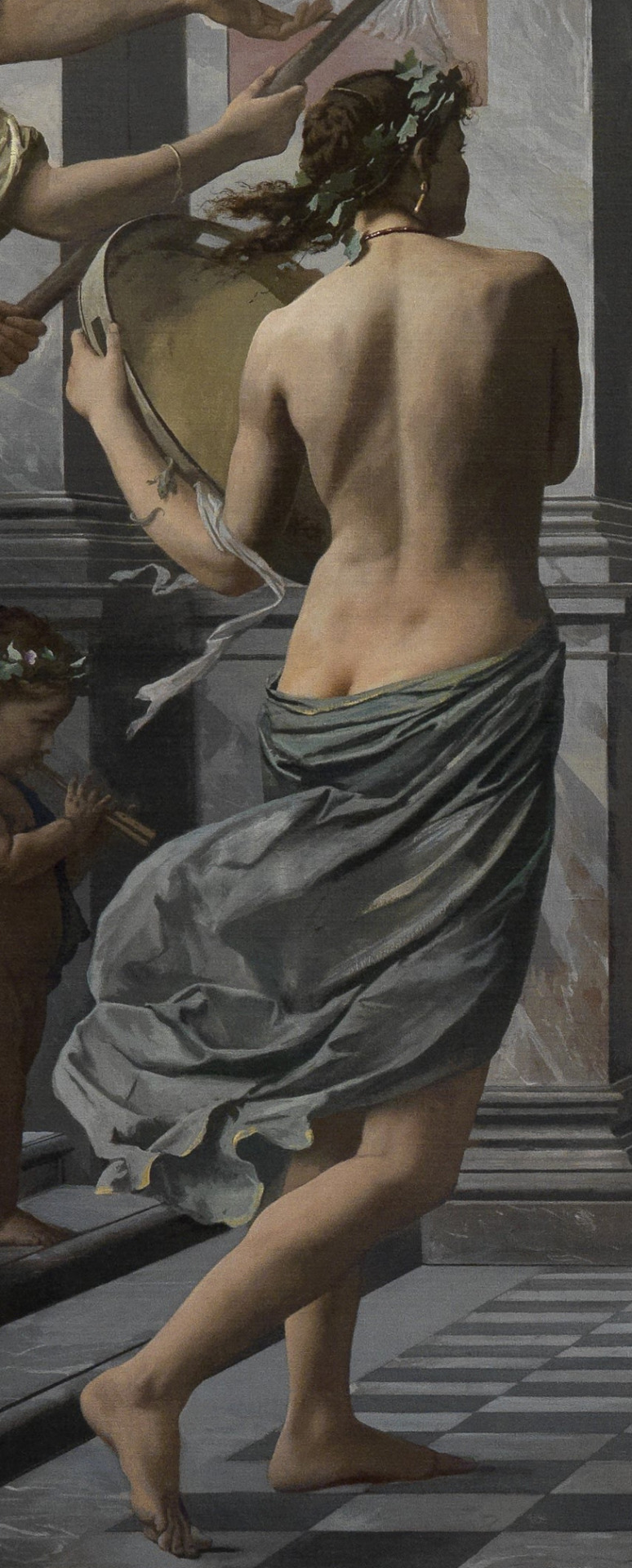
Anselm Feuerbach (German, 1829-1880)
Plato's Symposium, Detail, 1869
#Anselm Feuerbach#german art#mediterranean#greece#rome#greek#roman#cradle of civilization#classical art#greek mythology#plato#plato's symposium#1800s#revelry#female figure#female#woman#europe#european
2K notes
·
View notes
Text
1 note
·
View note
Text


Back on my high effort joke bullshit
#bedrock’s#ultrakill#sisyphus prime#minos prime#psych there’s some deeper meaning re: ancient greek male nudity + trans minos#maybe one day I’ll do a proper dive#also fun fact the pattern on his himation is a version of the cretan stitch!#which is a little dubious because (as far as I know) it came from minoan embroidery#which is distinct from ancient greek?#and minos was the king of crete in GREEK MYTHOLOGY#which is. younger than minoan civilization.#he’s possibly younger than the ancient civilization that was named after him (fun!)#anyways I’ll let you get back to your scrolling that has been Walker’s Wiki-Walking Hour#nvm I misremembered the cretan stitch was not from the minoan#still! the intersection of history and myth is just. augh#funfl fact did u know the archeologist who discovered the Palace of Minos was also named Minos
795 notes
·
View notes
Text

Guys we finally have a winner in the eternal battle...

#greece#funny#shitpost#meme#the fact that even in a world list Athens and Thessaloniki are fighting it out with each other is hilarious#okay i mean technically heraklion has the same rating as athens but let's ignore this#that 0.01 deficit to Thessaloniki can start a civil war#also some credit to chania being also in the list#heraklion#athens#thessaloniki#chania#crete#attica#sterea hellas#central greece#macedonia#greek cuisine#mainland#greek islands
151 notes
·
View notes
Text
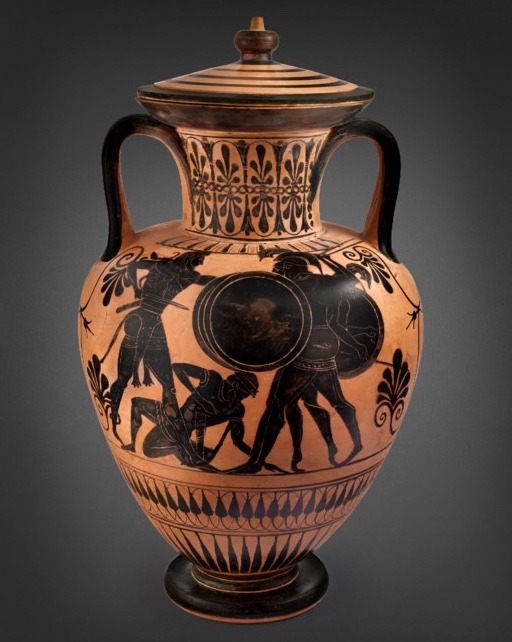
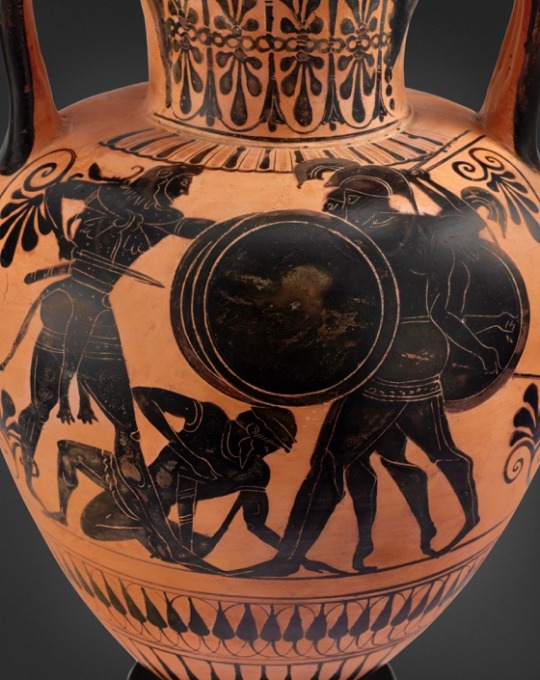
AN ATTIC BLACK-FIGURED NECK-AMPHORA AND LID
CIRCA 510 B.C.
#AN ATTIC BLACK-FIGURED NECK-AMPHORA AND LID#CIRCA 510 B.C.#pottery#ancient pottery#ancient artifacts#archeology#archeolgst#history#history news#ancient history#ancient culture#ancient civilizations#ancient greece#greek history#greek art
456 notes
·
View notes
Text
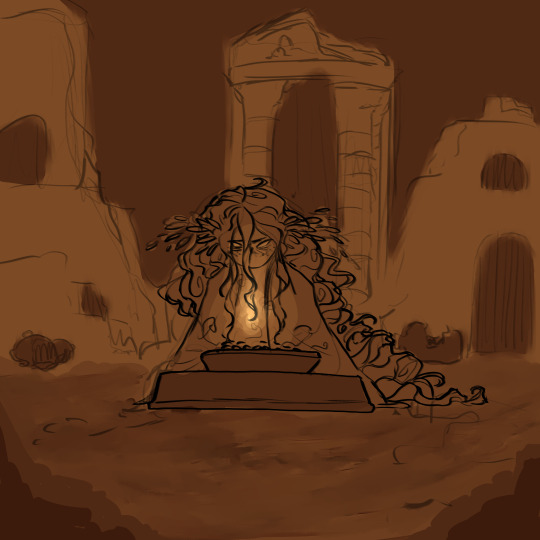
Left this abandoned in the drafts (which is a bit ironic) but it's a spin on this post, where instead of Apollo just being locked in some room on Olympus somewhere, he's bound to the ruins of an abandoned Ancient Greek city. Maybe somewhere near Delphi, maybe Troy, idk.
#trials of apollo#toa apollo#lester papadopoulos#sunny speaks#would this count as another au? idk#apollart#I got this Idea after learning about ancient Thera (which I can't believe I didn't know about before)#It was kind of the Ancient Greek equivalent to Pompeii? Except the volcanic eruption was MUCH more catastrophic#but because the eruption was so big the people on the island had warning signs for like a decade before it happened#So we have ruins that have been perfectly preserved but there are no bodies#Bc all the people were able to evacuate before the disaster#I mean there aren't even animal corpses at these sites they got everyone out#Fun fact this is also considered to be a large reason why Minoan civilization ended up falling apart#ANYWAYS all that aside I heard “abandoned ruins that have been perfectly preserved in ash” and immediately thought “Hmmmm yes ... suffering#Though to be clear I would not put Apollo in the ruins of ancient Thera (Tho the thought of him being the local cryptid of Santorini is fun#But you know what other city was burned to the ground? Heeheehee
235 notes
·
View notes
Text

Arthur Evans' reconstruction of the Dolphin Frescos, Knossos Minoan archaeological site, Crete
#minoan#minoan art#minoan crete#minoan civilization#artistic#art#greek art#knossos#greece#creteisland
400 notes
·
View notes
Text
Genuinely thought blind loyalty was Charles' thing. Guess Max has the same fatal flaw.
#lestappen#hamartia#creating their own greek tragedies#elle.txt#saudi arabian gp 2024#post-qualifying max interview comments#red bull civil war
131 notes
·
View notes
Text
youtube
Ancient Greece
#ancient greece#ancient greek#ancient philosophy#greece#greek#history#ancient civilization#western civilization#Youtube
48 notes
·
View notes
Photo

Henrietta Rae (English-British, 1859-1928)
Psyche before the Throne of Venus, 1894
#Henrietta Rae#english art#english#british art#british#art#fine art#greek mythology#mediterranean#cradle of civilization#women in art#women
3K notes
·
View notes